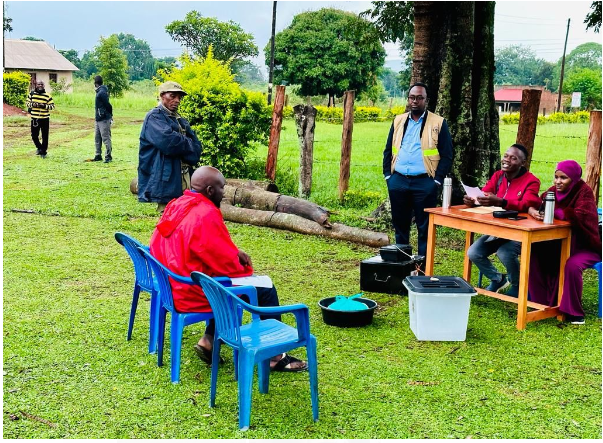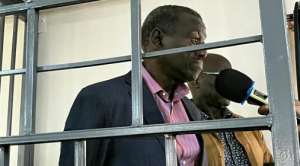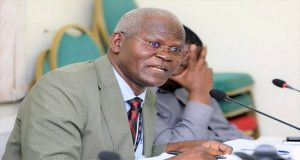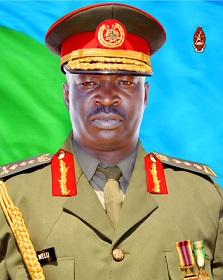
By Executive Editor
A total of 94,825 are expected to vote in the on-going Hoima LCV by-election. The exercise started this morning, with slightly more females than males voting. There are 173 polling stations in the two (2) sub-counties of Bugahya and Kigorobya that make up Hoima District.
There are five (5) candidates: Musinguzi Patrick (FDC); Mugisha Uthman Mubaraka (NRM); Muhumuza Vincent Savana (independent); Aguuda Moses (NUP); and Mugume Lennox (independent).
According to Crispin Kaheru, Commissioner, Uganda Human Rights Commission, polls opened at 7:00 a.m. at a few polling stations.

“Delays were noted in both Bugahya and Kigorobya due to disruptions caused by the early morning rains and, in many cases, the absence of the 10 voters required to witness the opening of polling. Election materials had, however, been delivered to most polling stations. Many polling stations across the district have had to be relocated from outdoor venues to enclosed facilities such as class rooms, churches, and other buildings due to the rainy weather. Candidate agents are visible at polling stations. Most of the agents present belong to the NRM, NUP, Independent (Muhumuza Vincent Savana), and FDC candidates. While members of the media are actively following the voting process, there is a notable absence of domestic election observers, generally. There is a visible presence of security personnel across the district. So far, the role of security personnel has been limited to patrolling and keeping law and order in designated electoral areas. There are queues of between 10 and 15 people at most polling stations located in trading centers and townships. The lines are much shorter at polling stations in rural areas. It takes about three (3) minutes for a voter to complete the voting cycle once they have been verified. So far, the biometric voter-verification devices are functioning well,” Kaheru said.
Today’s poll comes against the backdrop of a tense campaign. Despite the tensions that defined the pre-polling period, Kaheru says that “voting generally commenced peacefully with no major incidents observed.”
“However, electoral environments can change very quickly. Notwithstanding complaints around the disruptions caused by the heavy rain, election stakeholders, including candidates, agents, security, election administrators, media, monitors and observers and the electorate, seem to be collaborating up to this point.”
He implored all stakeholders to remain vigilant during the election as well as exercise tolerance and respect for each other as the process unfolds.
“The Electoral Commission and all state actors should maintain a high standard of integrity, professionalism, and independence as they execute their duties. Elections are supposed to be democratic exercises that allow citizens to express their will on who leads them. While competition is a natural part of elective politics, it must always be conducted within the bounds of the law and with respect for the democratic principles of freedom, fairness, and transparency,” he said.








